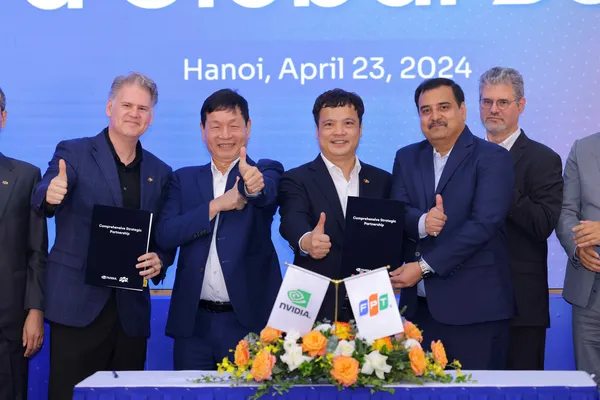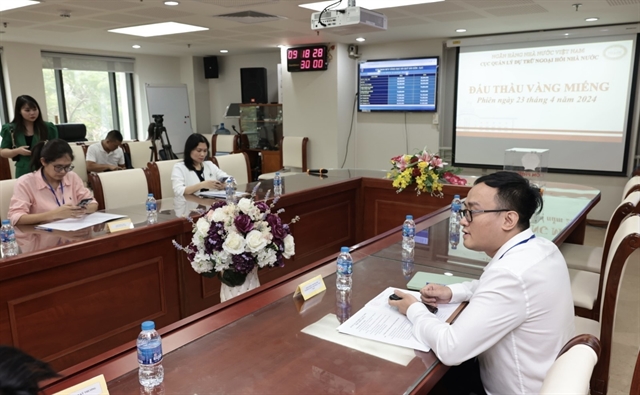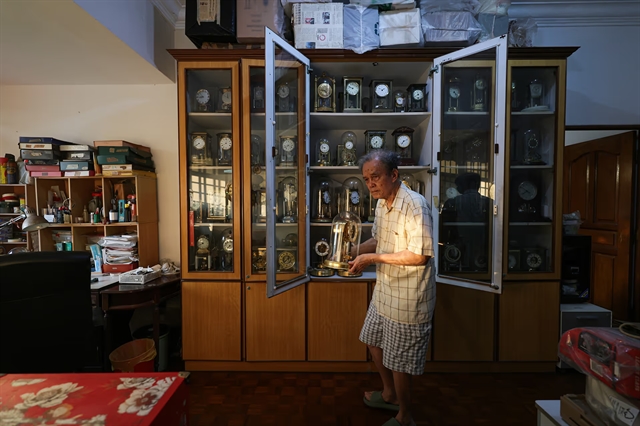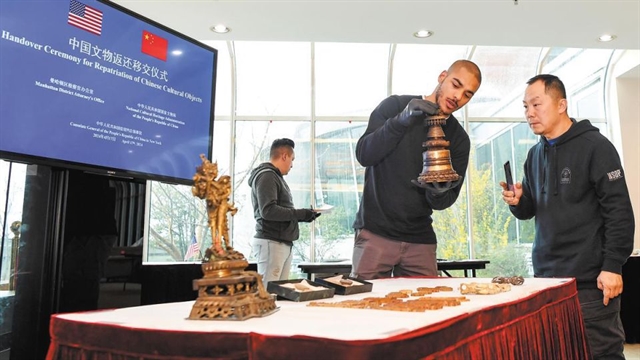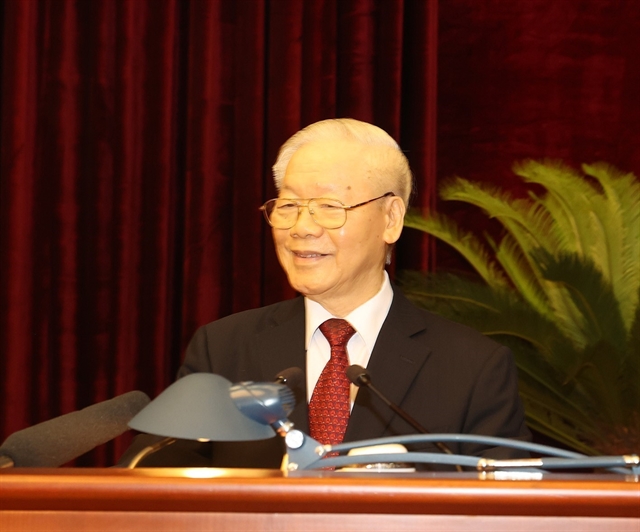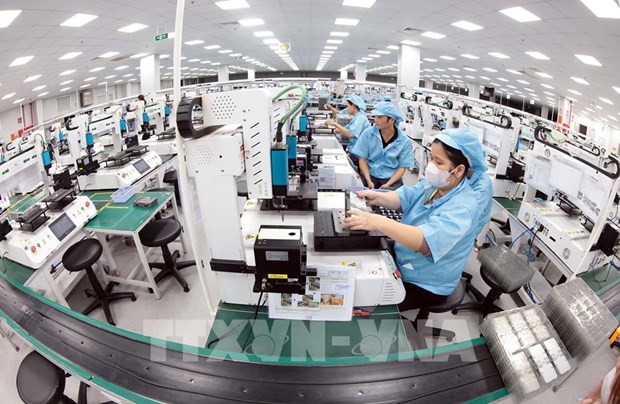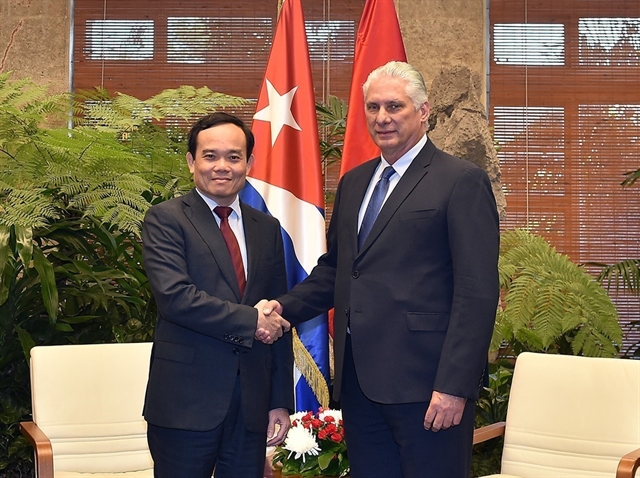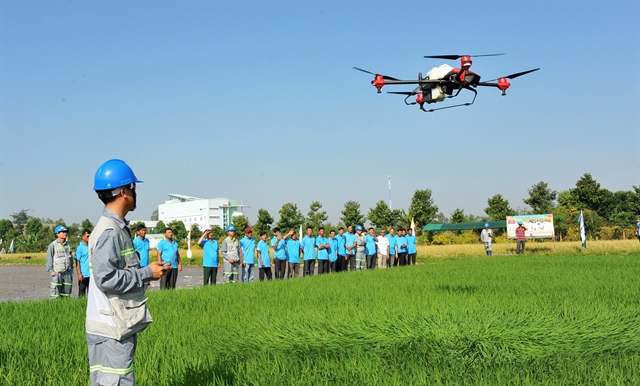 Society
Society

Việt Nam needs to fight against corruption and promote transparency and integrity among local community in order to create a healthy investment environment and improve local business competitiveness for global integration and sustainable development, heard a meeting yesterday.
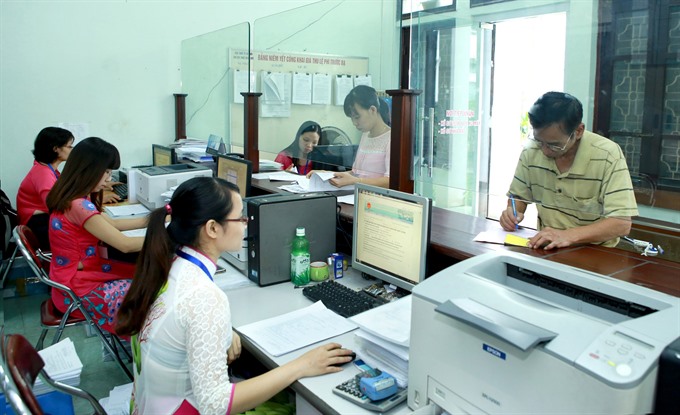 |
| Local enterprises submit tax payments at Hà Nội’s Đan Phượng Tax Department. Government officials are calling for the use of IT equipment in processing paper works to avoid corruption and disturbance from Government agencies. — VNA/VNS Photo Hoàng Hùng |
HÀ NỘI — Việt Nam needs to fight corruption and promote transparency among local communities in order to create a healthy investment environment and improve business competitiveness, officials and business representatives said at a meeting yesterday.
Participants said progress in fighting corruption requires collaboration between Government agencies, social organisations and the private and public sectors.
Vietnamese companies struggled with the so-called “unofficial cost” of doing business, making it a challenge to work and grow in a honest and transparent manner.
Though there is a comprehensive legal system on transparency and anti-corruption, regulations are not enforced, generating lack of confidence within the business community.
The problem discourages firms, as individual efforts are often not enough to change the corruption situation, due to a lack of support and encouragement coming from related sides.
According to the Germany-based non-governmental organisation Transparency International, Việt Nam ranks 112 out of 167 countries and territories in the ascending scale of Corruption Perceptions Index for 2015.
“That means Việt Nam is among the countries with the worst status of corruption. Such a bad situation can expose high risks and negative effects on local businesses,” Phạm Ánh Dương, Deputy Director of Towards Transparency, said.
Corruption was listed among top troubles in the Provincial Competitiveness Index 2015, published in March by the Việt Nam Chamber of Commerce and Industry (VCCI).
According to the VCCI, the percentage of companies paying “unofficial costs” rose from 50 per cent to 66 per cent between 2013 and 2015, while 11 per cent of surveyed companies spent more than 10 per cent of their revenues on “unofficial costs” and 65 per cent of them said that corruption often happened when they tried to complete procedures.
“A high percentage of ‘unofficial cost’ can discourage private firms and lower their resources—especially local start-up businesses—and reduce opportunities for co-operation between local and foreign companies,” Dương said.
In order to resolve the issue, Dương proposed a six-step international-standard programme to help private firms achieve business integrity, called Corporate Integrity Programme (CIP).
“Corruption is not only caused by the Government system, but also by the companies and their business sectors,” he added.
Under the CIP programme, the companies must assess the risks of corruption, design plans to fight against those risks, implement the plans and supervise the implementation progress.
But the most important thing is the company’s commitment to never compromise with corruption.
“We need the Government, companies and the community to act together on the issue and to monitor each other in order to achieve the best results,” he said.
In fact, the CIP programme has been proven to be one effective tool for Government agencies to win trust from local business community.
“When implementing the business integrity programme, we have realised transparency, simplified administrative procedures, reduced negatives and harassment and spread the values of a healthy investment environment among businesses at the Sài Gòn Hi-Tech Park,” Lê Bích Loan, Deputy President of the hi-tech park’s Management Board, said.
The tech-hub has changed their working status from ‘manager’ to ‘helper,’ published all procedures on the website and at the office, organised direct dialogue sessions with member enterprises to respond to their demands and concerns, and applied up-to-date software programmes in running the park, she said.
“In order to resolve corruption completely, training and education must be taken seriously for the whole community, including Government officials, companies and common people,” Phạm Đại Dương, Hòa Lạc Hi-Tech Park’s director said.
“Electronic systems and computers should also be used to improve interaction between Government officials and companies. This shift will reduce the chance of corruption, as the two sides will not have ‘direct contact’ with each other,” he said. — VNS

